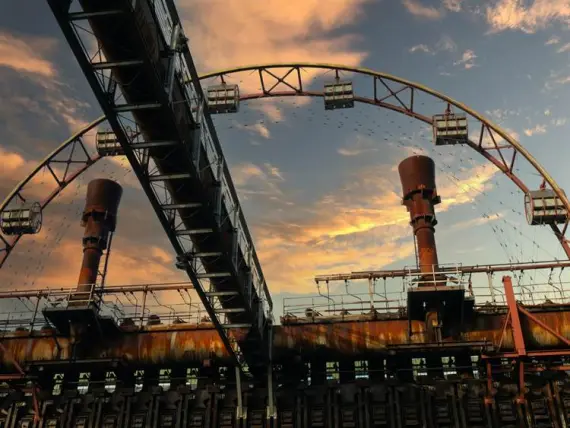Essen - Buses Germany. From the mines to the green capital of Europe
ESSEN

Essen - Germany in a Nutshell
Essen is a well-known city is the fourth largest urban center in the Rhineland-North Westphalia region. It is one of the most developed states in the country of our western neighbors, and Essen serves as a thriving urban center within it. It is the best urbanized and one of the wealthiest parts of Germany. Suffice it to say that Essen's population is nearly 600,000 people. In the mid-19th century, Essen had a very different character. Since then it has grown from a small town to a large industrial metropolis, famous mainly for steel production. Today, this branch of the economy is fading into the background, because the city has taken new directions of development, the azimuths of which are determined by services, new technologies, commerce, administration and various branches of industry in the broadest sense (engineering, chemical, armaments, electromechanical, transportation).
The large number of companies and industrial plants means that plenty of people come to this part of North Rhine-Westphalia seeking their fortune in foreign labor markets. Essen West Germany has always been a direction where Polish emigrants have also headed for work and a better life. It's no different today, when the borders between our countries are open and getting a job in Germany does not require additional permission. The situation is facilitated by a dense network of coach connections between Poland and Germany, which allows frequent and inexpensive travel between the workplace and the family home.
Location of Essen West Germany
When they say Essen, Germany means the city in the full sense of the word. The Ruhr region is Germany's largest conurbation. In addition to Essen, it includes more than a dozen major urban centers. They include Dortmund, Duisburg, Gelsenkirchen, Oberhausen, Bochum, Hamm and Hagen, among others. There are also other thriving cities in close proximity: Düsseldorf, Wuppertal, Cologne, Bonn, Mönchengladbach and Leverkusen. The region takes its name from the Ruhr River, which flows through the southern districts of Essen. The Ruhr is a right tributary of the Rhine River. The Ruhr is located in central Germany, near the western border with the Netherlands. Due to its high level of urbanization and industrialization, the conurbation is characterized by a well-developed road network and public transportation system.
Sightseeing in Essen
The city has a strict architectural structure, which makes it easy to explore on foot. From our bus stop at HBF Südseite, Freiheit Str., where buses stop, Sindbad, you can reach the Folkwang Museum of Modern Art on foot, which houses works by many notable artists. Also worth a look is the Cathedral of St. Cosmas and St. Damian, where there is an Ottonian crypt. Other attractions such as the Grugapark botanical garden, the 18th-century Borbeck Castle and the 19th-century Villa Hügel, the former residence of the Krupp family, also await persistent explorers. This family, well-known throughout Germany, founded a German concern in 1903 for the mining of iron ore, steel processing or the manufacture of industrial machinery, armaments and munitions. In addition to its many historical attractions, the city has a number of atmospheric restaurants and cafes where visitors can sample specialties of regional cuisine.
Buses to and from Essen
Welcome aboard our buses from and to Essen! Are you interested in the city description? Check out the details of connections to Essen from your location wyszukiwarce na stronie głównej.
ESSEN - list of coach stops:
- Hbf - Südseite, Freiheit
SINDBAD coach stop:
ESSEN - list of international connections:
© 2026 Sindbad
Technical support, assistance, payments: Sindbad IT
© 2026 Sindbad
Technical support, assistance, payments: Sindbad IT
